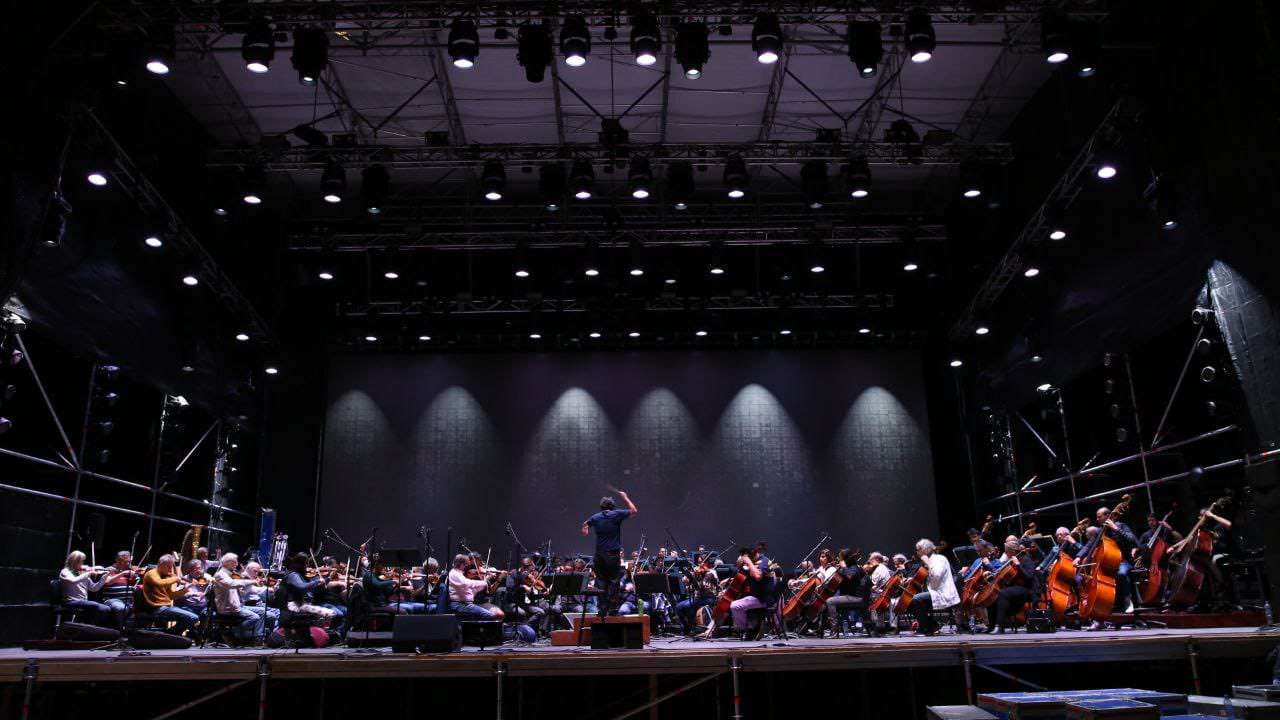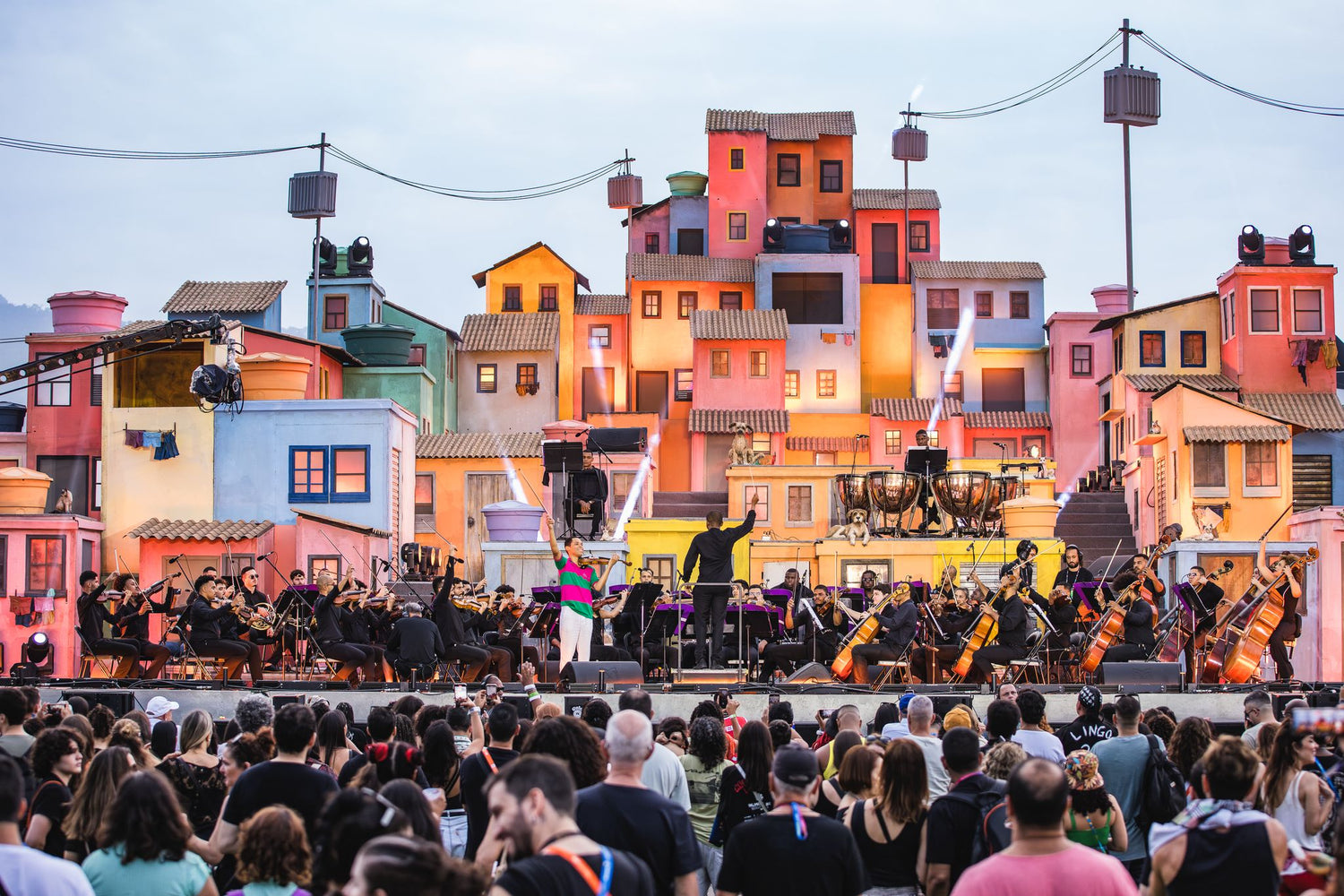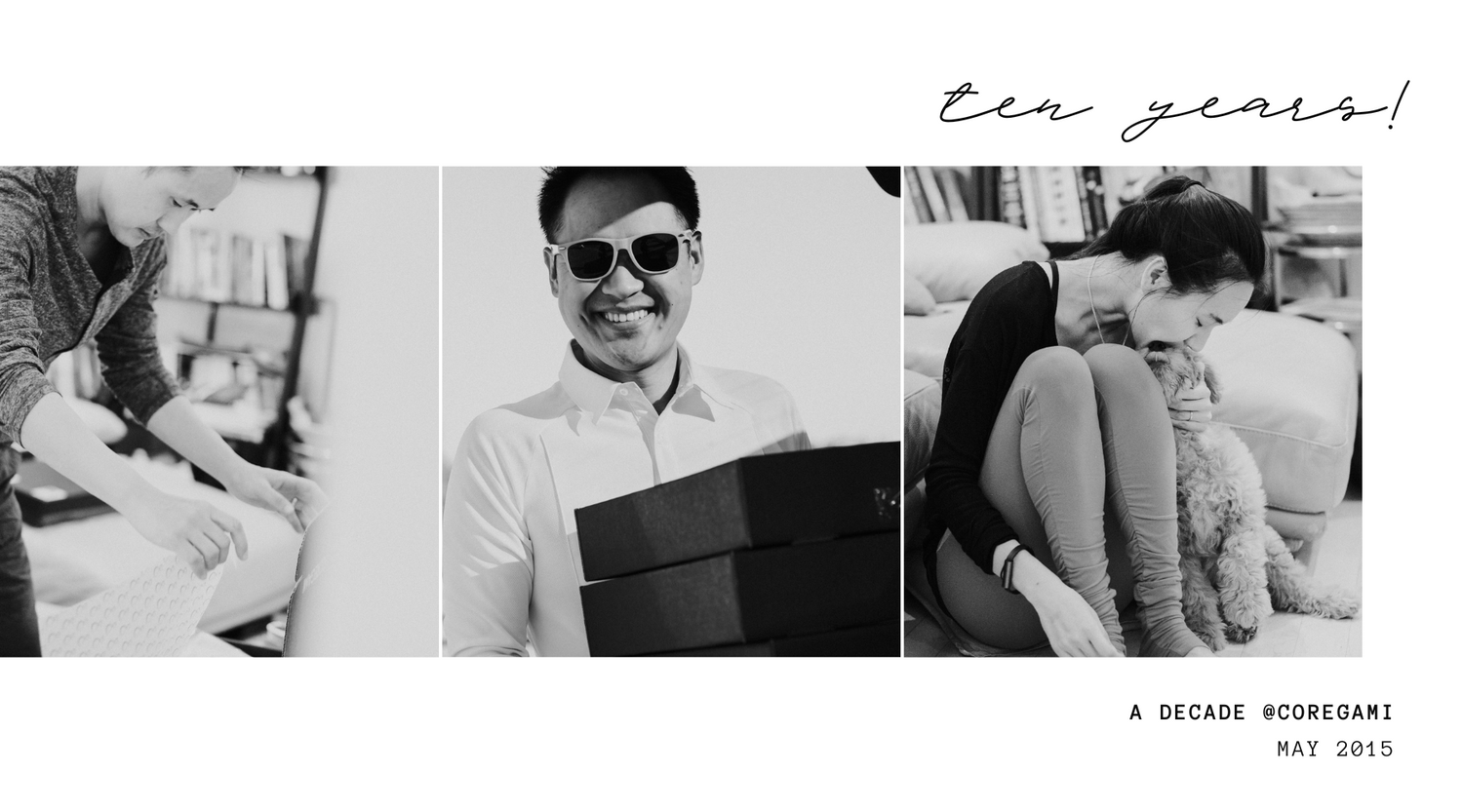Scott Yoo was wasted.
The 18-year-old violinist had thrown a raucous house party to celebrate his admission into Harvard, and he passed out drunk on the floor, utterly insensate. (“I never really could handle alcohol,” he admitted.)
Compared to many young phenoms in the classical music world, Yoo had something of an unconventional upbringing. His parents were insurance agents, not musicians. He went to public school, not an uppity academy conservatory. He smoked pot. He got in trouble playing pranks at school. He took joyrides in his father’s car.
“None of my friends played music, and I hid the fact that I was a musician,” he said. “When you aren’t white and living in Hartford, Connecticut, you’re already different, so you want to make yourself less different.”
But whether he broadcast it or not, Yoo was a rising star in the music world.
In his junior year of high school, Yoo traveled to South America and won a prestigious violin competition on a whim, netting $15,000 in prize money. (He did what most teens would do: spent it all. “I walked into a Honda dealership with a wad of cash and said, ‘I want this car,’” Yoo recalled.)
In the wake of his competition success, he also landed an agent. His music career was kicking off in a big way, and he was only 18. So he may have been unconscious, but besides this, life was looking good. “I was really flying high,” he said. But while Yoo was drunk on the floor at that house party, a friend walked by and accidentally stepped on his finger, breaking it.
For five months, he couldn’t play the violin.
Before this, Yoo was certainly celebrating getting into Harvard, but he wasn’t actually planning on going. His childhood violin teacher was holding a spot for him at Julliard, and Yoo had been leaning towards accepting it. His broken finger changed things, forcing him to accept just how tenuous a music career really is. “I realized I was just one broken bone away from never being able to play again,” he said.
So Yoo gave up on music. He went to Harvard to chase a degree in physics.

The Dumbest Guy on Campus
According to Yoo, the best thing about Harvard is the people. “Everyone there is smarter than you,” he said, “but they all have different viewpoints. For the first time in my life, people valued that I played music. They said, ‘You’re really contributing to society!’ I never thought of music that way.”
During his freshman year, Yoo became good friends with a group of girls living on the floor below him. “They were all very attractive, but all of them were way smarter than me,” he admitted. “That was very intimidating… and also kind of thrilling.” Being at Harvard around all these intelligent, motivated people was “like being outside when it’s pouring rain,” Yoo said. “You just surrender.”
The worst thing about going to Harvard was the flip side of this reality. “You’re the dumbest guy on campus,” he said. “I’m not kidding. I was smarter than average growing up, but here I was quite literally the dumbest person in many of my classes. It was humbling.”
There was a silver lining. Yoo realized pretty quickly that he wasn’t going to cut it as a physicist. “I had nothing to offer the field,” he said. Although he graduated with a physics degree, he shifted his focus back to music. It’s a good thing, too, because in the two decades since, he’s seen remarkable success.
Today, Scott Yoo is the host of the twice Emmy-nominated PBS show Now Hear This—currently filming its sixth season—and has served as the chief conductor of the Mexico City Philharmonic Orchestra since 2016.
(Calling from the back of a Mexican taxicab, Yoo conducted our entire interview between short bursts of Spanish with his driver. “My Spanish is not good, but I speak enough to run the orchestra,” he admitted, chuckling.)
Yoo’s shift back towards the musical world began while he was still at Harvard, as his physics major was kicking his butt. He and his friends threw a concert to raise funds to put Harvard’s orchestra on tour. They played Vivaldi’s Four Seasons to a sold-out house—first time Yoo had ever seen his school’s concert hall full. Selling 1,800 tickets at $20 a pop, he and his crew raised a jaw-dropping $36,000. “For a student group, that’s unheard of,” he said.
Riding that rush, Yoo and friend Rich Lim decided over greasy slices of pizza one night to found their own orchestra, the Metamorphosen Chamber Orchestra. And despite its slapdash inception, Yoo ran the group for 10 years, playing everywhere from Los Angeles to New York. During that time, his music career really took off, primarily as a conductor.

He first served as assistant conductor for the Dallas Symphony Orchestra (aged 26), and later conducted the Colorado Symphony, Saint Paul Chamber Orchestra, the San Francisco Symphony, Indianapolis Symphony, Utah Symphony, and New World Symphony, among others.
Across the pond he held other roles, from conductor of the City of London Sinfonia and Orchestre Philharmonique de Radio France to the Estonian National Symphony Orchestra in Tallin, Yomiuri Nippon Symphony Orchestra in Tokyo, and Korean orchestras Seoul Philharmonic and Busan Philharmonic. He has also served as the music director of Festival Mozaic (formerly the San Luis Obispo Mozart Festival) since 2005.

Chasing the Story, From Pet Cats to the Devil
Yoo’s most famous work, however, is helming Now Hear This, the first classical music series on American prime-time TV in 50 years. The show is akin to Anthony Bourdain’s Parts Unknown, with food replaced by classical music. Yoo travels the world, from Argentina to Morocco to Germany, connecting with musicians and composers on their home turf.
Most of the subjects Yoo interviews are alive, like Yo-Yo Ma and Keb' Mo, but he also investigates the lives and works of dead composers and musicians, from the well-known (Bach, Mozart, Beethoven) to the slightly more obscure (Scarlatti).
Although he never became a physicist, some of the lessons Yoo learned at Harvard have come into play as he films Now Hear This.
Like any other school, Yoo said Harvard had good and bad professors. The good ones were the ones who could convey complex material in a way that allowed all their students to understand it. “The professors who taught me the most were the ones who made the best analogies,” Yoo explained. “They communicated the material so well that even a dope like Scott Yoo could understand. So I try to host Now Hear This in a way that doesn’t assume knowledge, that makes it relatable.”
Yoo said a big part of the intent behind the show is to bring new listeners to the classical music world through alternate avenues. “Maybe a ton of people don’t listen to classical music, but a lot of people like food and wine, others like dance, others like travel, history, art, culture… There’s a bit of all those things in Now Hear This. We want to offer an ‘on-ramp’ into classical music for as many people as possible.”
(It’s clearly worked; Yoo’s episodes routinely receive 20 million views or more.)
Perhaps surprisingly, when Yoo goes to interview a subject, often he knows what he wants them to say beforehand. “Harry [Lynch, the show’s producer] whispers in my ear before the scene,” Yoo said. “He’ll tell me, ‘We need the guest to say X, Y, and Z. If you can get them to say that, we have everything we need.’”
Yoo’s job, then, is to riff with the guest, talking long enough that the conversation meanders over the intended subjects. They talk about everything from pet cats to their favorite movies, and often as little as five percent of their conversations make it into the final hour-long episode.
It also doesn’t always pan out the way Yoo and Lynch want. “Sometimes the subject tells you the opposite of what you want, or what you expect, but that’s great. You go with that,” Yoo said.
A few months ago, for the fifth season of Now Hear This, Yoo explored the life of Genoese violin virtuoso Niccolò Paganini (1782-1840), who was rumored to have sold his soul to the devil in exchange for his skills.
Yoo “met” with Paganini by interviewing the violinist's great-great-great grandson (ironically, also named Niccolò Paganini). Yoo asked Paganini about the violinist’s famous gambling debts, and Paganini revealed his ancestor didn’t actually have any gambling debts. “What he ended up telling us was far more interesting…” Yoo said.
(You’ll have to watch the episode to find out more.)

On Virtuosity and Artificial Intelligence
Speaking of Paganini, there’s a lot of talk about “virtuosos” in classical music. The term is thrown around quite liberally. Most (if not all) of the musicians Yoo interviews are labeled as virtuosos. Many people would say Yoo himself is one.
At first, virtuoso may seem a synonym for “master,” describing someone who is extremely good at something. But virtuosity appears more complex than that. On one hand, there are virtuosos who have peerless technical prowess, who can play anything without the slightest error. On the other, you have virtuosos who may not be technically perfect, but who play with unparalleled creativity, whose performances are dynamic and evocative.
For Yoo, virtuosity is a bit of both. “Anybody who is really good at anything can be a virtuoso,” said Yoo. “But it requires both creativity and technical skill, and it doesn’t have to be music. We did an episode recently on virtuosos, and we visited Cirque du Soleil. Those performers are incredible. If that’s not virtuosity, I don’t know what is.”
During a time when artificial intelligence seems to be ticking milestone after milestone, Yoo feels confident that virtuosity is one thing machines and computers will never replicate. “There’s something so incredibly synthetic about artificial intelligence,” he said. “No matter how beautiful it is, it’s synthetic. Virtuosity has to be born of people. It’s like chess. Computers are better chess players than humans, but no one watches computers play each other. A computer can’t sweat. That sweat matters.”

Yoo filming at Festival Mozaic for season 5 of Now Hear This (2023).
For a recent episode of Now Hear This, Yoo composed his own piece of music. Perhaps surprisingly, this was the first time in his career that he wrote his own piece. (He’s still working on it today, and estimates he’s only halfway done, although he is slated to perform it at Festival Mozaic in July.)
He said he found it surprisingly difficult, but learned a few things during the process. “Most classical musicians today aren’t creators, we’re recreators,” he said. “So writing this piece was one of the hardest things I’ve ever done. I don’t know how to put it… If I had to give advice, I’d say just write anything down, no matter how bad it is. Keep writing. It unclogs the pipes.”
Now Hear Coregami
Though he only became associated with the brand quite recently, Yoo was actually one of Coregami’s first customers. He’s been wearing our shirts for a decade, since his time as assistant conductor of the Dallas Symphony. “I was probably one of the first 100 or 200 people to buy a Coregami shirt,” he joked. “I love these shirts. I always have.”
“What I love about Coregami is that someone actually sat there and thought about the mechanics of moving around as a musician,” Yoo remarked. “They struck a balance between looking good, and feeling good. Because hey, you can go in a tux and tails on stage and look good. That’s not a problem. The problem is you feel terrible. Coregami eliminates that. You look good on stage, but you practically feel like you’re wearing a t-shirt. That’s unbelievably valuable.”
In fact, Yoo believes one could make a direct parallel between the philosophies of Coregami and Now Hear This. “At Now Hear This, we want to present something that has the production value of The Crown,” he said, “but at the same time, we're trying to make the subject of classical music comfortable and accessible. That’s just like Coregami. They want to give their customers the ability to present themselves just as well as they do when wearing a super-starched (super uncomfortable) tuxedo, but still feel comfortable playing on stage.”
As we closed our call, Yoo told me he was about to head off to Madrid to film an episode revolving around a piece of music by Italian composer Luigi Boccherini, Musica notturna delle strade di Madrid (“Night Music in the Streets of Madrid”).
His plan is to dive into the piece by experiencing the “culture that crawls out at night” in Madrid, strolling the cobbled streets late at night, wining and dining. “My producer called me up and said, ‘Hey, we’re going to be shooting at night, so find a really cool black shirt to wear on camera while we’re out on the streets.”
Yoo laughed. “I told him that wouldn’t be a problem.”
Check out Scott Yoo (and our Seji Kimono) in the upcoming sixth season of Now Hear This.

Filming season two of Now Hear This in Hungary with the late Geoff Nuthall (2019).





